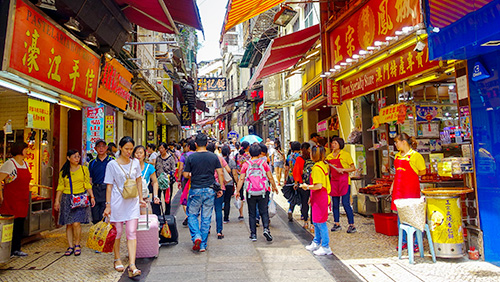The idea of a tourist tax on visitors to Macau has been talked about for nearly a year now, as the district’s leaders try to manage increasing tourism while still making it an enticing spot for travelers. After plenty of thought, the Macao Government Tourism Office has settled on a familiar price for those following the story: between MOP100 ($12.50) and MOP200 ($25.00) per head, GGRAsia reports.
This figure comes from Hoi Io Meng, the deputy director of the MGTO, who spoke with reporters on January 8. The price range was decided based on a survey of local residents, conducted between May 20 and June 20, 2019.
 The results of that survey were released in early July, and revealed that local citizens thought a reasonable price for a tourist tax would be MOP100. The idea to ask as much as MOP200 might be new from the MGTO, leaving them room to bargain.
The results of that survey were released in early July, and revealed that local citizens thought a reasonable price for a tourist tax would be MOP100. The idea to ask as much as MOP200 might be new from the MGTO, leaving them room to bargain.
This study has been provided to the government to help them come to a final decision on if there should be a tax at all, and how much it should be. Hoi noted the government is now assessing the survey.
The concessionaires, who are likely to be negatively affected by a tourist tax, have already provided some commentary on the subject. When the topic first came up seriously, MGM China holdings Grant Bowie suggested that the proceeds of the tax could be used to help pay for more tourism campaigns, reinforcing the industry.
It’s still not clear if that will happen. One of the original concerns of lawmaker Sulu Sou, who proposed a tourist cap, was to relieve the burden increased tourism is creating on Macau’s infrastructure. Paying for better infrastructure seems like as likely a cause as any with the proceeds from a new tax.
It’s still not guaranteed that any tourist tax will be put into place, but Sou’s idea has already been struck down. 22 of his fellow 28 lawmakers voted down his proposal. We noted at the time that the International Monetary Fund (IMF) suggests Macau should not discourage tourism, which is vital to the region, but fund better infrastructure to accommodate it.